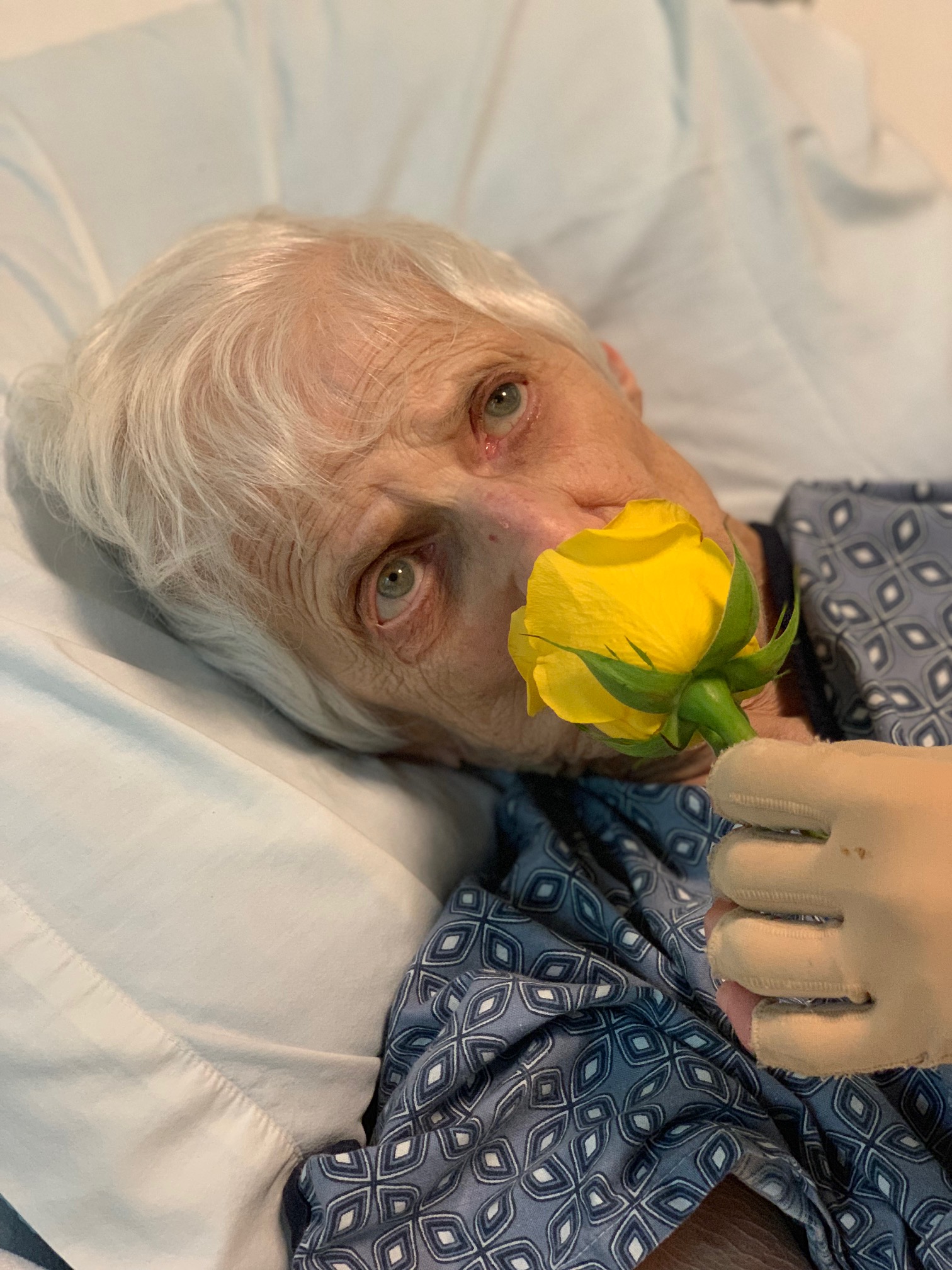
09 Mar 6 Months Gone
I’ve been feeling a little bit out of sorts for the last few days, and yesterday I realized that tomorrow is the sixth month anniversary of my mother’s death. It keeps sneaking up on me like that. As the various weekly, or monthly, anniversaries pass, I find myself struggling in some way and then realize that my body knows something that I wasn’t aware of. Frankly, it’s almost impossible to believe that it’s been six months – yet, it also feels like another lifetime ago. Last week I went to yoga five times, and at each class I was reminded that it was the one year anniversary of the studio’s move to their new space. I began going to yoga about two weeks after they moved into the space so for me it’s an almost one year anniversary of starting yoga.
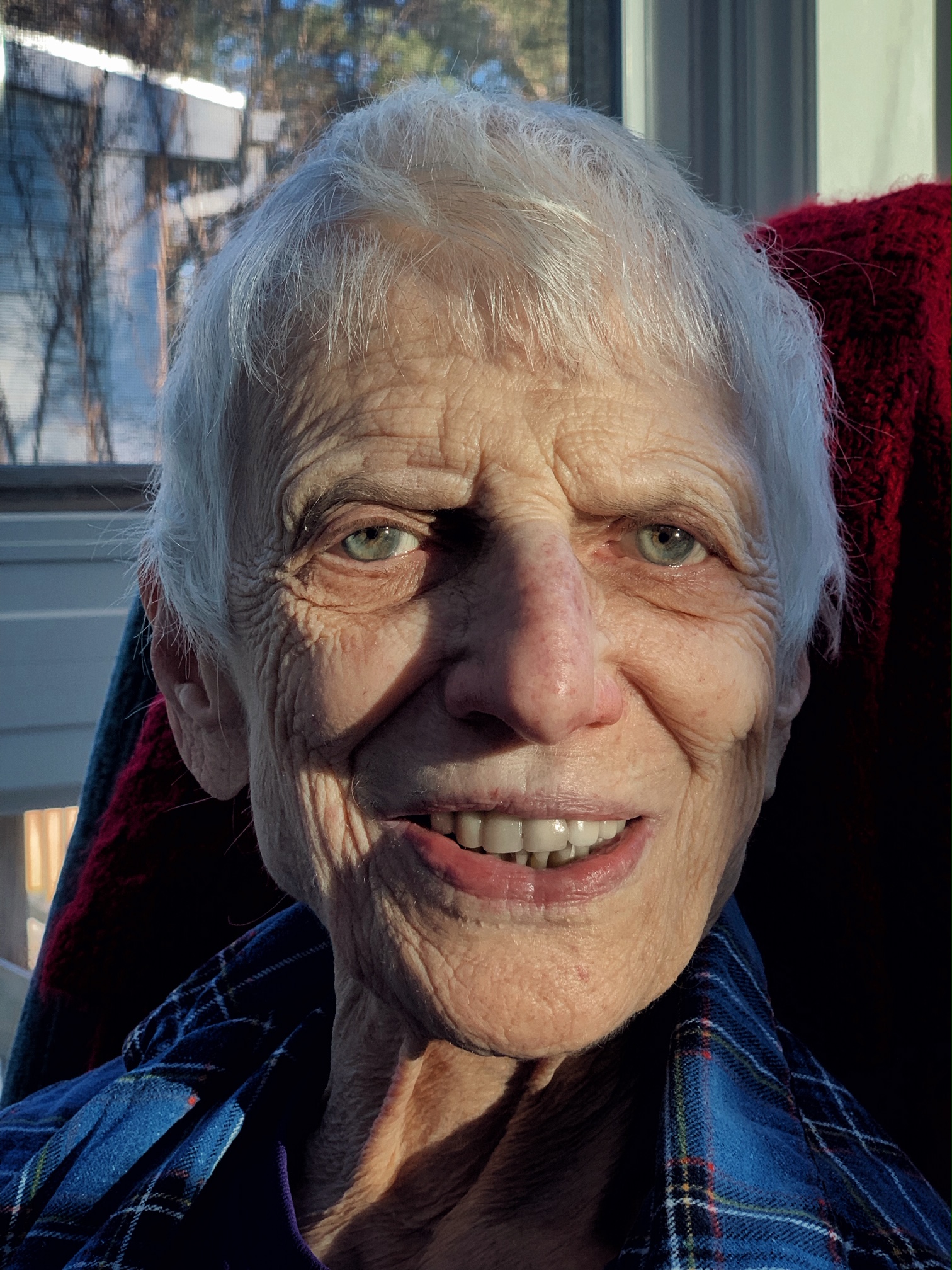
I started going to yoga a month after my mother recovered from severe pneumonia last January. Her bout with illness was profound and I had spent many nights by her bedside, keeping a hand on her shoulder in order to will her to stay on this earth. A couple of weeks after she had recovered, my wife and I were protested at a film festival by students who objected to a film that we made about protesters. It’s way too complex to get into here, but it was a difficult situation, and my friend made me go to yoga with her in order to help me get through it. The first class she took me to was an advanced class, but despite the difficultly, the yoga helped to ground me. I went back the following week, and the week after that. I also began to do it on my own and I found myself needing it. While my mother had survived the pneumonia, and even made it back to independent living, she was struggling with memory issues and anxiety; the two were connected. So, the stress of dealing with her discomfort coupled added to my need of grounding.
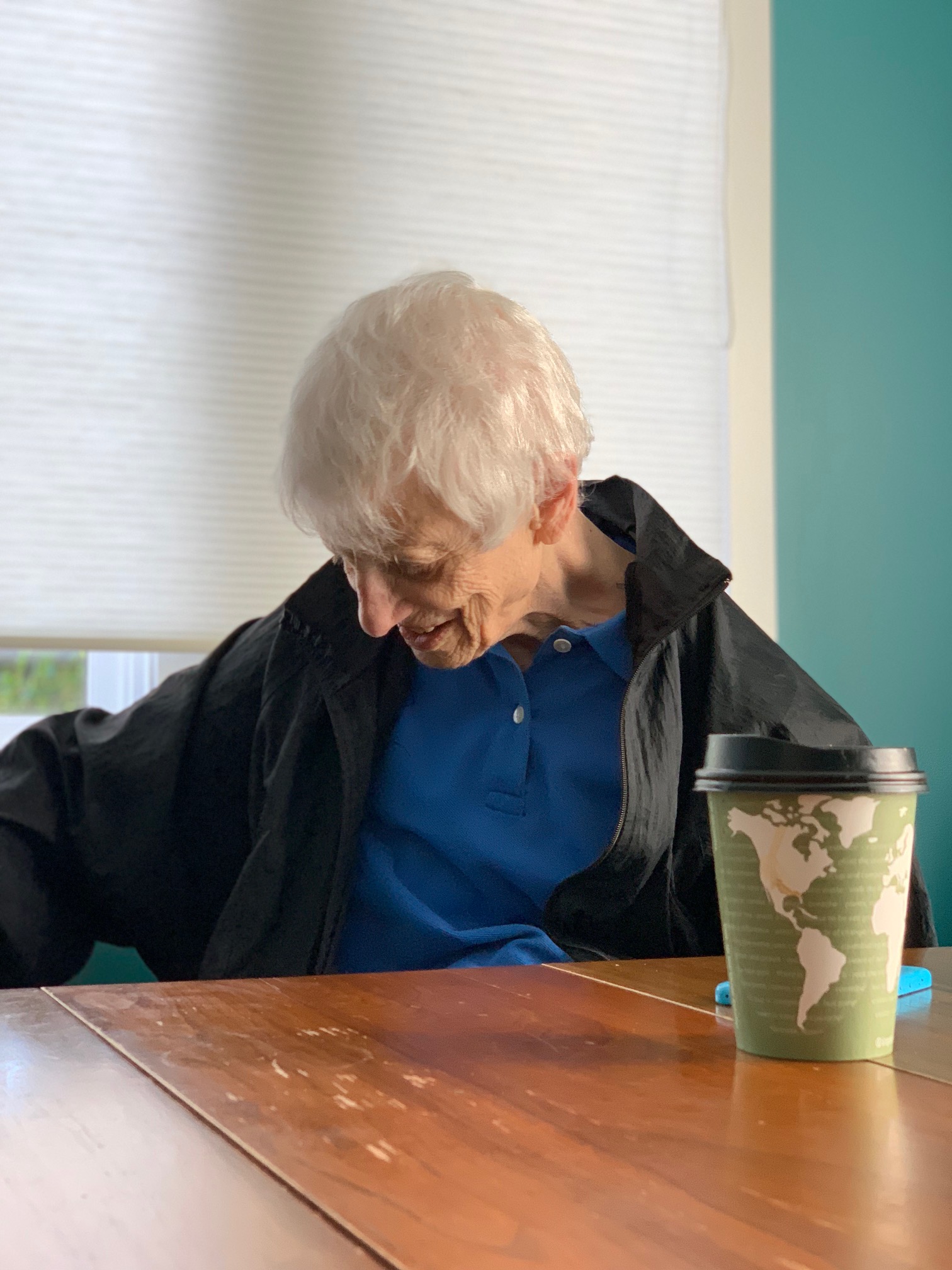
In early May, I went to meet with her, her doctor, and her social worker to see if we could address the anxiety in some way. Her doctor thought the anxiety was probably a cause of some small seizures because, she had been told that my mother had a number of small seizure events while visiting with a therapist. Several times, as she had struggled to articulate something emotionally difficult, her head would drop and she would have a small seizure. The therapist had said she couldn’t see her in her office anymore due to concerns for her health. At the meeting with her doctor, my mother refused to acknowledge that the seizures were a problem, or even that they happened. When I pressed forward, explaining my concern, she looked me dead in the eye and said, “You see it your way and I see it mine. I don’t think I have a problem with anxiety.” I told her, with some emotion, that I wasn’t trying to control her, but that I loved her and I wanted to help keep her safe. I want to remember that she gave me the finger, because she often did, but I think she might have just said something like, “I appreciate your concern but I’m fine.” She had a powerful need for autonomy that had a tendency to override reason. It was an awkward meeting because I was there as an observer and an advocate but it ended up feeling like a kind of ritual discussion between her and me in which she once again demanded full control over everything. Three days later, she was walking in the main building of her retirement community and, most likely having a seizure, she collapsed backwards and fractured the back of her skull. I often describe it as having pulverized her skull, but it’s such an awful word that I tend to cringe when it leaves my lips or my fingers. However, that’s what it was. Days later her neck was purple as if she had bruised it because so much blood leaked down below the skin. It was two months before the wound on the back of her head stopped scabbing up and leaking.
At the time it happened, we had no idea how severe it was. She was so insistent on autonomy that she made the nurse call and let us know she had fallen, but that she was fine and didn’t want us to visit. My sister happened to be on her way to visit my mom when she found out. My sister called me to let me know and despite my concern, given my experience of a few days earlier, I decided to let her have her space. However, at around 11:15 that night I got a call from my mother, asking for the address of her cottage. She was trying to find it but couldn’t remember where it was. I knew right away that something was drastically wrong, so I urged her to go back to the care center where she was staying for the night so that they could observe her. She kept trying to explain that she needed some things from her place, but I could hear just how confused and scared she was. I realized that she had broken out of the care center. I rushed to my car as I talked to her, urging her to make her way back to the care center. She kept assuring me that she was fine but that she just couldn’t remember exactly where she lived. After I reminded her that she had bumped her head and that’s why she was confused, she reluctantly agreed to go back to the care center. When I pulled up 15 minutes later, she was waiting out front for me, pacing in the shadows. I quickly parked and walked her back inside. When I got upstairs, the nurses were extremely relieved and they worked to calm her down and get her into bed. She was obsessing about her things, because she thought she had lost something. Her brain wasn’t working well, and I assumed she had gotten a concussion but I wasn’t aware of just how badly she had bumped her head.
She had spent several weeks at the care center after her bout with pneumonia, so she at least knew the lay of the land. Still, she couldn’t exactly remember why she was there and when I again reminded her that she fell, she felt the back of her head. It had a very big bandage on it. She slowly became a little more settled, but she was very concerned about where her things were. She hated feeling controlled, which is likely why she had tried to escape. The nurse took me aside and said she was concerned because my mother had refused a CAT scan, but she thought that the damage was worse than my mother believed. She also explained that she had tried to get the doctors to take it more seriously but it was clear that she felt they weren’t listening to her. This was a hard line for me to figure out, because my mother had paperwork on file which called for no medical interventions, so it felt very difficult to force that on her at midnight. She assured me she was OK and would now stay overnight, so I decided to go home and check on her in the morning. When I got out of yoga at 10 AM, I called the care facility and was told that she was resting, had had food that morning and taken her medicine. I can’t remember what it was I had to do, but I was busy, so I asked my wife to go check on her around noon. My sister arrived at around the same time, and it was immediately clear to them that my mother was really not well. Along with the nurse, they decided they needed to take her to the emergency room.
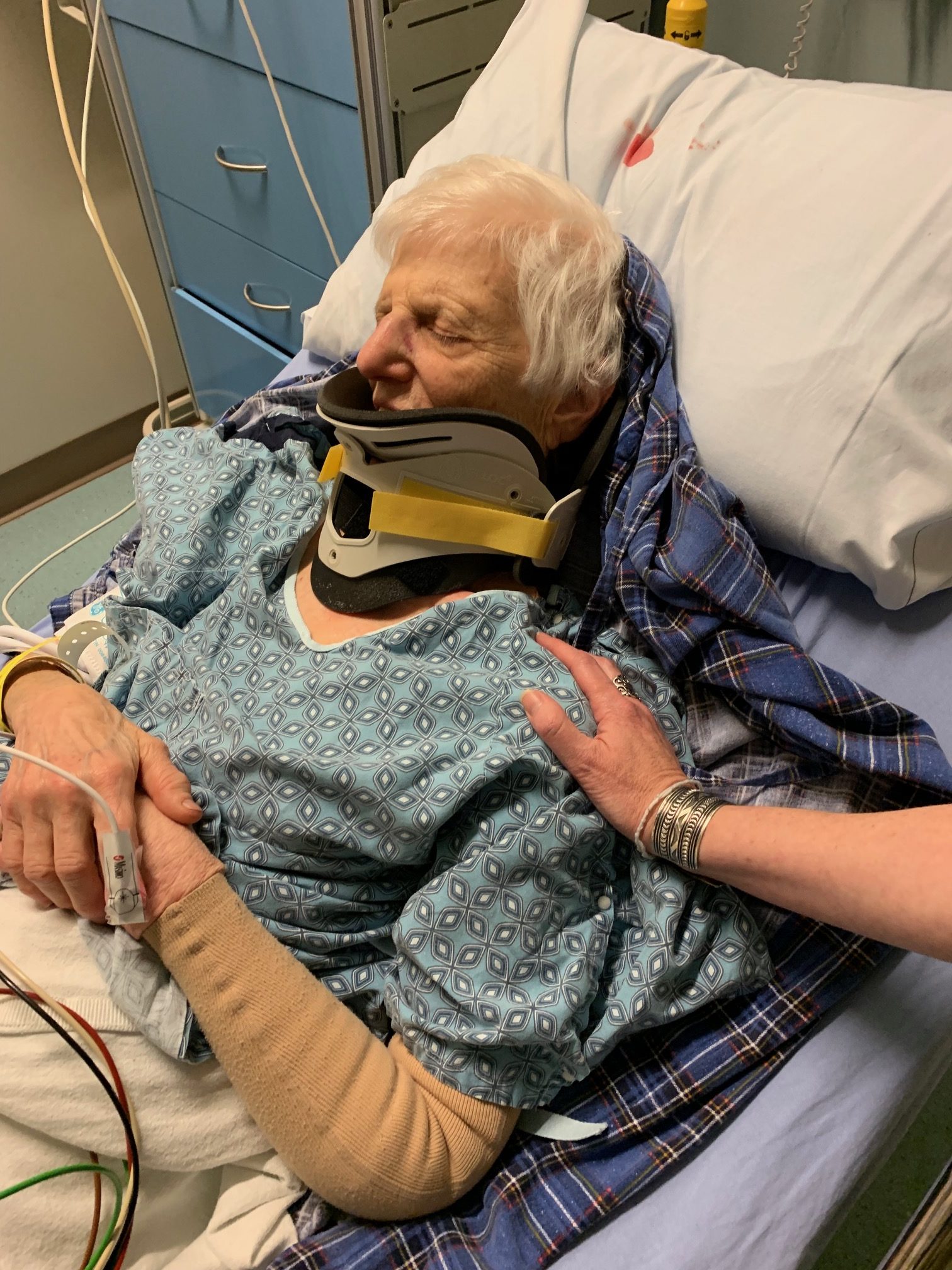
She was in a lot of pain and very out of it. I arrived just as they came to wheel her out for a CAT scan. They had put a neck brace on her which made her very uncomfortable and her head was really hurting. About 20 minutes later, the nurse pulled up the CAT scan which revealed a massive bleed in the front of her head. They didn’t need to say anything because as they scrolled though the file it was clear as a bell. It appeared that when she had fallen and cracked her skull on the back of her head, this had forced her brain to slosh forward, causing the bleeding in the frontal area. The nurse wasn’t sure what they could do, but suggested that she be moved to the other hospital with a neuro-critical care unit.

The nurse pulled me aside to ask about her patient directive and I told her that she didn’t want any major interventions. Ever since I was a kid, I knew this about her. She did not want to suffer and had made that clear to everyone that she didn’t want any major efforts to keep her alive. As we waited for the ambulance, I went outside to call my sister and my brother. I let them both know that I wasn’t too hopeful. I had a very bad feeling about things. My mom was not completely out of it despite the head trauma. She was a little confused and in a lot of pain, but was able to talk to us. Still, the nurse made it clear that with a non-intervention situation, if she went into cardiac arrest in the ambulance, they would not do any life saving measures. I said that I understood and I headed out to meet her at the other hospital. Those drives, heading from home to the hospital, or from hospital to hospital, where one doesn’t know how things will turn out, are surreal affairs. I had too many of them last year.
She made it in one piece. I sat in the waiting area of the critical care unit as they got her settled. She hated the wires and leads that connected her to the machines and when I got in the room she was more awake than she’d been, but also more agitated. A few months earlier when I had stayed five nights with her in the hospital, I had pushed myself way too hard and I knew it. I was willing to stay for a while with her, but when she started insisting that I drive her home to her cottage as she began pulling the leads off of her chest I politely took my leave. That was hard, but I knew I couldn’t take the battle, and that the staff was prepared to handle these difficult emotional situations. In her previous stay, she had very serious sun-downing issues and thought I was her husband. I told her that I would be back in the morning. It wasn’t easy to leave in that situation. I felt a profound sense of guilt. However, I also knew that I had to take care of myself or I wouldn’t be able to advocate for her.

The next morning I woke up pretty early and walked to the hospital. It’s only about a mile and a half from our house. I passed the bike above and was struck by how hopeful it seemed. I got there and she was doing much better. However, I also found out that they had to restrain her the night before. She didn’t really remember that though. She seemed to only be able to remember a few minutes before and wasn’t fully aware of where she was, but definitely tried not to reveal that. They couldn’t sedate her because of the head injury, so I imagine she gave them hell the night before. Over the next couple of days she improved quite a bit, but her memory and other cognitive abilities were compromised.
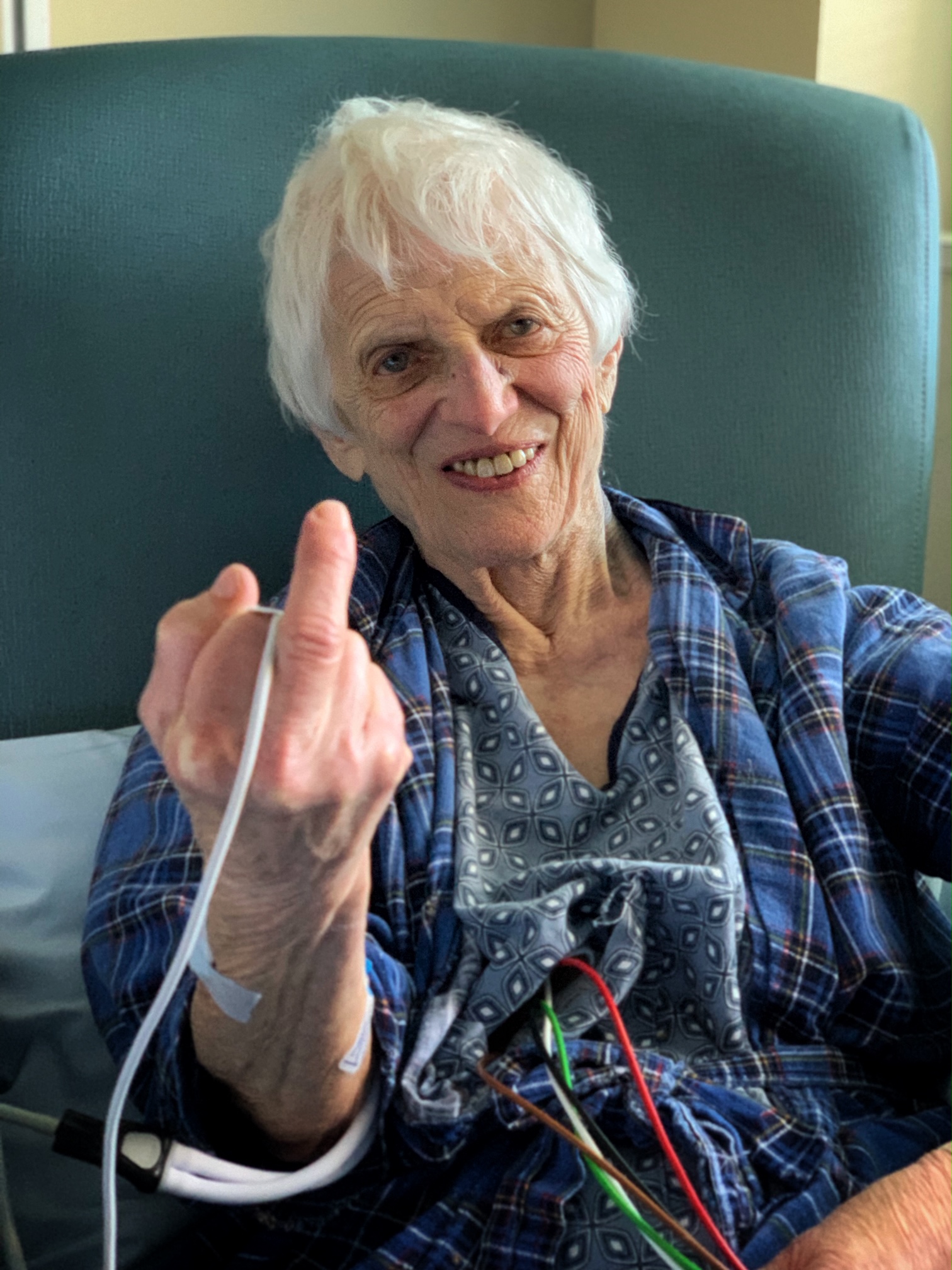
I started to dictate this into my phone earlier today and it all kind of rolled out. To make a long story short, it was a difficult week in the hospital, but she improved enough to move back to the care center at her retirement community. The next 3 to 4 months were a wild roller coaster of ups and downs. Eventually things headed down. She passed away on September 9th as my sister laid in bed with her and I held her hand. I had just arrived home from a trip to Europe and Israel with only two hours to spare. My brother was with us on the phone. Today is the 6 month anniversary of her death. It’s a full moon out there and I am struggling to orient myself to my grief. Yoga has been invaluable. It’s part of the reason I can’t really process that it has been six months. I have been going upwards of 5 times a week for the last 9 months. Over the past couple of 13 week yoga sessions, I have attended more classes than anyone else. As I explained to my teacher, trauma is a powerful motivator. I’ve needed it, but I’m starting to feel like I might not have to be as obsessive about it.
Writing down this narrative of those first few days has helped me to connect with what that time felt like. I think I’ll be doing more of it. During my mom’s decline, I did a lot of photographing and writing. The feedback made it clear that it was helpful to others. We all struggle with how to deal with our emotions around illness and death, as well as how to communicate about it.

No Comments